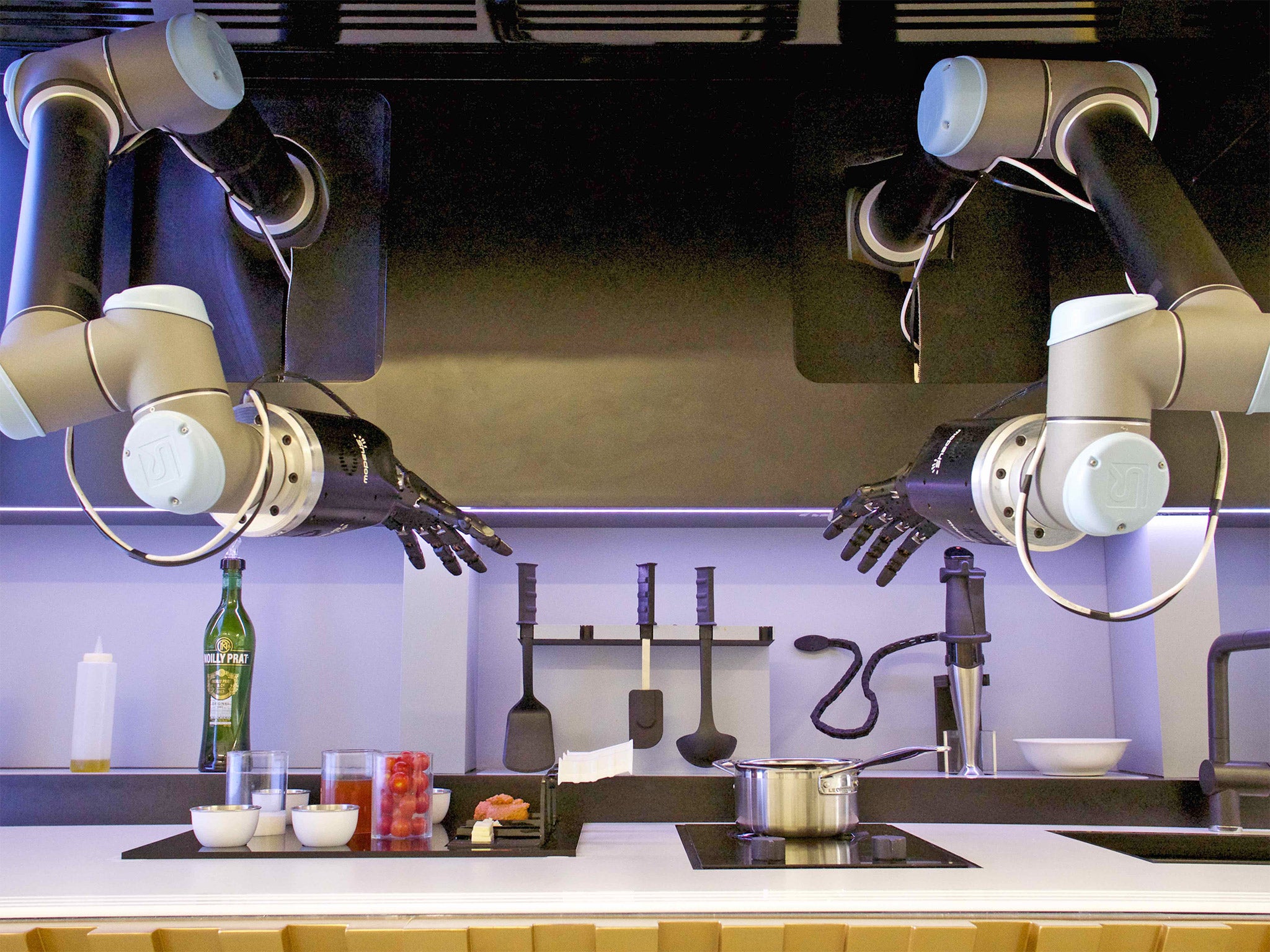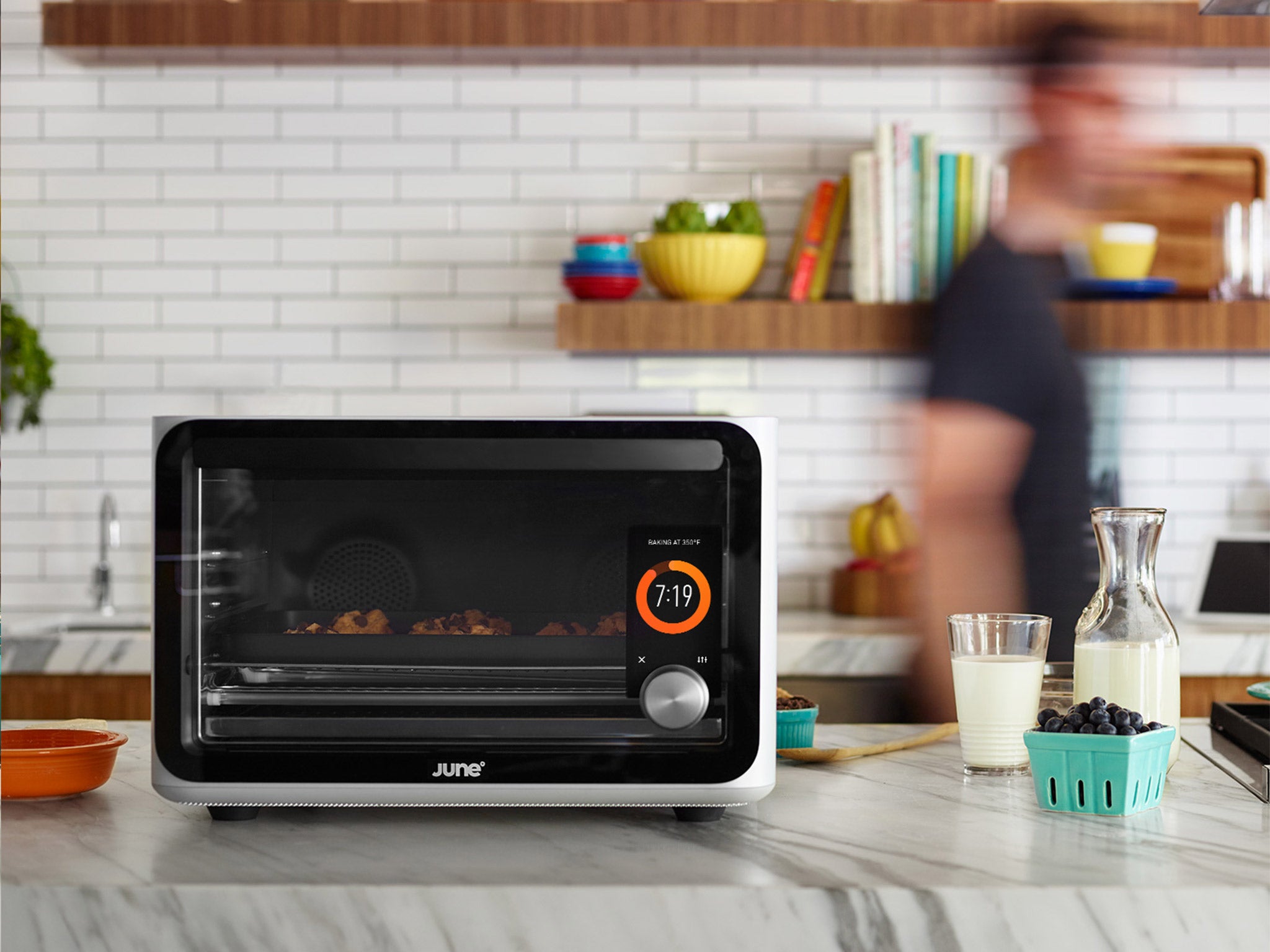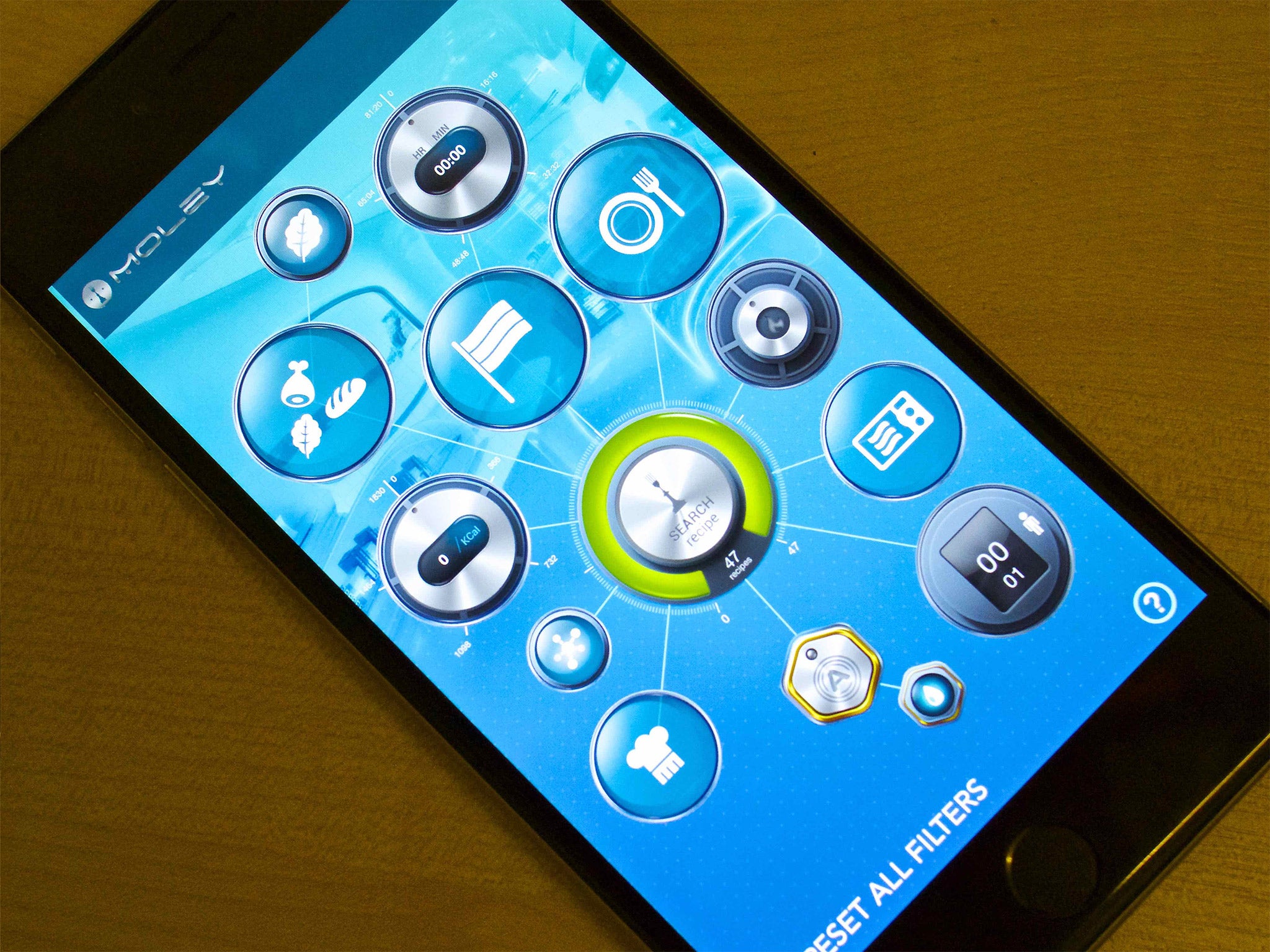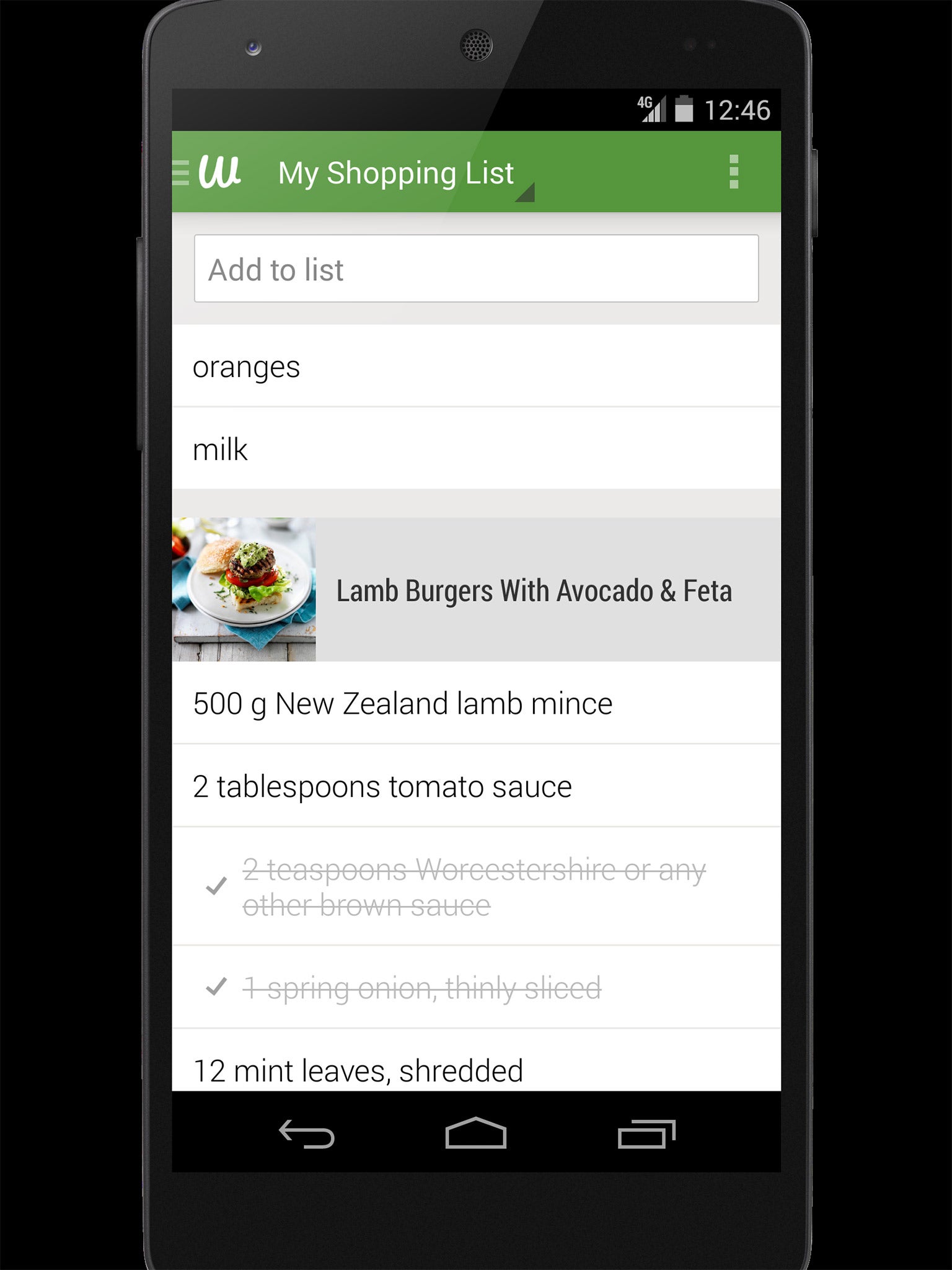Kitchens go hi-tech: From robot chefs to recipe-shopping apps, computerised cooking is coming
If a microwave is the most hi-tech thing in your kitchen, it could be time for an upgrade. From apps that automatically make shopping lists from your recipe books to smart ovens and robot chefs, Kevin Maney rounds up innovations to make your mouth water

We've been hearing ad nauseam about driverless cars. Next up will be the cookless kitchen. There's a lot of stuff simmering in that realm. Investors have been pouring money into "food tech" startups the past couple of years. Entrepreneurs are turning spicy phrases such as "the new restaurant is no restaurant". MBA-wielding forward thinkers, applying the kind of spreadsheet thinking that they might use to improve the efficiency of a supply chain, are talking about how they're out to reduce our "time to meal".
That all may sound a bit overheated, but to be fair, the technology of the meal hasn't profoundly changed since the introduction of the microwave oven in 1955. As data, artificial intelligence and robotics intersect in the home, the everyday meal is ripe for disruption. The room we call the kitchen might end up becoming as quaint as a fireplace – nice to have, but not necessary.
These grand schemes to change the nature of cooking help explain some of the vertiginous valuations of recent food-tech companies. In the US, Munchery, for instance, lets customers order freshly prepared meals using a mobile app. The chilled meals are delivered in about 30 minutes, then customers can throw them in the microwave or refrigerate for later in the week. While that may sound as if it's barely more clever than pizza delivery from Domino's, Munchery just raised another $85m (£54m), valuing the company at $300m. Startups with names such as Blue Apron, DoorDash, Hello Fresh and ChowNow are getting similarly large investments. In 2014, US food-tech companies raised more than $1bn and India, Europe and China have all become sizzling regions for food-tech startups.
If the end goal were just newfangled food delivery, the investment surge would look like bubble-driven investor looniness. But remember: Facebook was once an online college yearbook – nobody knew it was going to change the nature of social circles. Perhaps some of these companies will bring about a similarly profound transformation in meals. If you stir the pot a little, you can see how new technologies will come together to change cooking.
Take a UK-based company called Whisk. It was started by Nick Holzherr, who is somewhat famous in the UK because he first pitched his idea on the country's version of The Apprentice, getting turned down by Lord Sugar, who huffed: "Who could be bothered with it?" Whisk, for now, is an app that automates shopping lists on your phone. A user can find a recipe online, throw it into Whisk and the app will add the items needed to the list. You can refer to the list while at the supermarket, or in some shops use it to automatically order from a delivery service.

Behind that simple idea, Holzherr has a bigger one: as Whisk gathers data about recipes, ingredients and user tastes, the company plans to develop a "food genome" – a nod to Pandora's Music Genome Project that breaks down the traits of songs. As Holzherr explained to me, once Whisk has data about food and user taste preferences, it can make matches – like a food-discovery service. You might tell Whisk that you want to try a new Indian dish that's under 600 calories, and it could present a recipe geared to what it knows you like.
As meals go digital, companies such as Whisk and Munchery will learn a great deal about ingredients, recipes, trends and their customers' tastes. That will change the way we buy and eat food, much as Pandora and Spotify are changing the way we try and buy music.
Technologists are also working on the mechanics of cooking. A couple of former Apple developers have created an oven called June, which is supposed to recognise the food placed in it and cook it perfectly. The company says June is a "computer-based oven that thinks like a chef". It's also a step toward a kitchen that can cook by itself.

At Asia's inaugral Consumer Electronics Show in May, Moley Robotics showed off its automated kitchen. The thing looks like someone cut off Robocop's arms and stuck them on a kitchen counter. For now, the system is only a very sophisticated mimic – it has to record a human chef's actions, then it can cook the meal if the ingredients are precisely placed in predetermined spots, all within reach of the arms. In a way, it's not a huge advance over Dick Van Dyke's mechanical kitchen in Chitty Chitty Bang Bang.
But systems like this will get smarter and more flexible, using artificial intelligence to learn how to make meals and figure out where to find the ingredients. Add up the various inventions that are in the works, and the robot cook starts looking like more than just a labour-saving daydream of a nerd with 10 kids.
Throw IBM's Chef Watson into the mix, too. As a way to show off the Watson computer's capabilities, IBM fed it truckloads of recipes from around the world, along with data about ingredients and how their chemicals react to one another. The machine developed recipes no one had ever created, sometimes for good reason, unless a beef burrito with chocolate and edamame sounds good to you. The computer even has its own cookbook, Cognitive Cooking With Chef Watson. The bottom line: a machine can now think up recipes.

We're on a path toward some kind of machine that will know just about everything there is to know about food combinations, and it will be able to assemble intimate knowledge of the tastes of the people it will serve. Robotics are getting so good, so quickly, there's no reason to think robot cooks won't make their mark first in high-volume food preparation enterprises and, later, homes. Swizzle together a robot chef plus food data and artificial intelligence, and you have a home cook that can be as good as any celebrity chef – or even your mother.
Maybe the best way to automate cooking will be to build a kitchen suited to robots instead of humans – like a self-enclosed, self-cleaning unit of stoves and arms and blenders that sits in the basement and sends finished plates up through a dumb waiter. People who really want to cook will be like people who really want to do their own woodworking. Instead of a human-scale kitchen as a default room in any house, it will be something you have to choose to install.
Which puts a whole new spin on the techie catchphrase: "Software is eating the world." I guess we may end up eating software.
(c) Newsweek Europe
Join our commenting forum
Join thought-provoking conversations, follow other Independent readers and see their replies
Comments
Bookmark popover
Removed from bookmarks